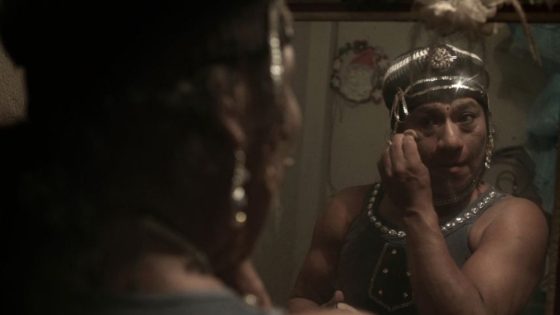Ecuadorian documentary “The Beach of the Enchaquirados” has been picked up by The Hague-based Latin Quarter, a sales, co-production and distribution outfit dedicated to Latin American, Spanish and Latinx diaspora cinema.
Originally released in 2021, the film has found a second life thanks to a pair of Open Doors Screenings at this year’s Locarno Film Festival. During its initial festival run, “The Beach of the Enchaquirados” screened at high-profile international festivals, including IDFA, Guadalajara and Doclisboa, winning the Arquipélago Contemporary Art Center Award at the latter.
A logline for the documentary reads: “Vicky is a fisherman by day and bar owner at night. When she was a little boy her dream was to be a radio soap opera star; nowadays, she dreams of falling in love again. How is it possible that a small, barren place in the third world has managed to achieve this special form of freedom and tolerance?”
Produced by La República Invisible, “The Beach of the Enchaquirados” is directed by Iván Mora Manzano, whose previous fiction and documentary films have screened at Venice, Locarno, Mar del Plata, and numerous other international festivals.
According to Mora, the drive to tell stories from underrepresented communities comes from a desire for self-improvement. “I’m interested in exploring places where my prejudices can be decoded. This project matched that need. I have named this search as the ‘intimacy in the periphery,’” he explained.
“I realize that I had to tell the story of these trans activists who live only a hundred kilometers away from my conservative city. In this place, I feel challenged by the other; I feel that I have prejudices or ‘truths’ to confront, things to learn by filming with new questions. I believe that this ‘intimacy from the periphery’ needs to meet audiences around the world,” he added.
He said that trans people in the rural village of Engabao, where the film was shot, can find acceptance that is often more difficult to encounter in more populated areas where prejudices fester.
“In Engabao, they live as fishermen, hardware and grocery store clerks and cooks, living at peace in trades that are unusual for trans from the city where they are marginalized and work mainly as hairdressers or sex workers. They live their lives without secrets but with other conflicts and prejudices,” he explained.
“In our continuous search for the latest aesthetic and expressive trends in contemporary Latinx cinema, we’ve been amazed by the beauty of Ivan’s film, a contemplative thought-provoking transgressive story which feels like a fresh oasis of freedom in a mainly homophobic territory,” Latin Quarter Head of Production Juan Castro told Variety.
He said the now is to get the film in front of a much wider and global audience than it got when released in 2021. To that end, his company will host screenings across Europe with impact premieres in key cities including Berlin, Amsterdam, London, Madrid and Barcelona, while simultaneously working with a network of buyers to create new distribution opportunities for the film.
Source Agencies


